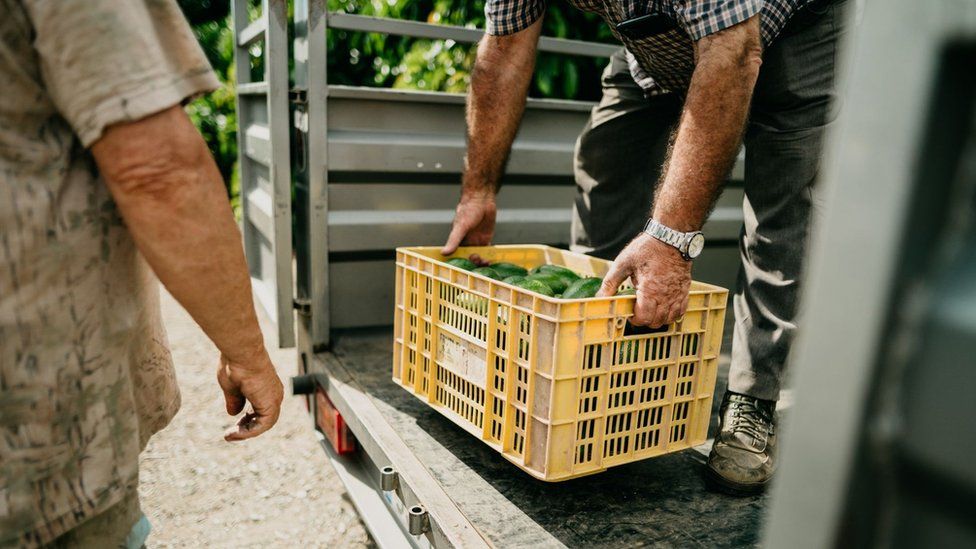Increased fuel prices will lead to people paying more for food in shops and restaurants, an industry trade body has said.
The high cost of diesel will end up being passed on to customers, the Federation of Wholesale Distributors said.
Surging fuel prices come on top of other pressures on shops including labour shortages, retailers said.
Households are facing a cost of living crisis as inflation soars.
With fuel prices hitting record levels, the trade body for UK wholesalers has told the BBC that its members will pass on increased transportation costs to their food shops and restaurant customers, who will in turn pass on those costs to consumers.
“Food price inflation is already happening, but this is going to make it worse, because there’ll be charges passed on to customers and then obviously to end users as well,” said James Bielby, chief executive of the Federation of Wholesale Distributors.
“So, people buying food and drink in shops, when they’re eating out, will be paying more because the cost of distributing those goods to the outlet has gone up so much.”
Fuel prices: Customers abusing forecourt staff as costs soar
Ukraine war: Cost of filling diesel family car hits record £90
Fuel prices are rising amid fears of a global economic shock from Russia’s invasion of Ukraine.
The prices are mainly determined by the price of crude oil and the dollar exchange rate, as agreements are made in dollars.
At one point this week oil jumped to $139 a barrel at one point, the highest level for almost 14 years, before slipping slightly.
‘I’m exhausted’
Philip de Ternant is managing director of Creed Food Service. His 80 lorries make 3,500 food deliveries per week to restaurants, cafes, pubs, care homes and schools across England and Wales
The cost of diesel has become a major headache. The business is paying £13,200 a week more than it was at the start of the year.
“We buy on card at fuel stations, but the majority is fuelled up on site with bunkered fuel. We’re buying 33,000 litres a week on average.
“In January 2021, we were buying at 92p a litre. This January, we were buying on average £1.17 a litre. In February, on average it was £1.21.”
This week, he was shocked at the cost. “We’ve bought at £1.55, and I’ve been told by our fuel wholesaler it could be £1.70 next week. ”
Mr de Ternant said some diesel suppliers had told him they could not deliver until next Wednesday at the earliest, and could not say what the price would be.
He said the cost could not be absorbed in what is a low-margin industry.
“We will have to find a mechanism, whether it’s a price increase on everything, or a surcharge on every delivery – and I have to do it quick.”
He acknowledges not all customers will be happy, but believes all his competitors will be having the same conversations.
“I’m exhausted. None of us saw this coming. It has been relentless, the last two years, for every leader of a foodservice business.”
Surging costs
The Federation of Wholesale Distributors represents 600 firms that deliver food and drink to retail, hospitality and the public sector, such as schools and care homes.
Some firms get diesel for their vehicles delivered in bulk to their premises, but others buy at forecourts.
Mr Bielby said: “If you’re distributing goods around the network, fuel costs will be 25% to 30% of your distribution costs.
“Those wholesalers who are buying on what’s known as the spot market are seeing their costs go up by as much as 50% per litre. So it’s a huge impact, and that then leads to a surcharge on customers.”
He said some larger businesses who had hedged, or bought their fuel in advance, weren’t yet as affected, but were likely to feel the impact when current contracts came to an end.
To view the original article, click here.




